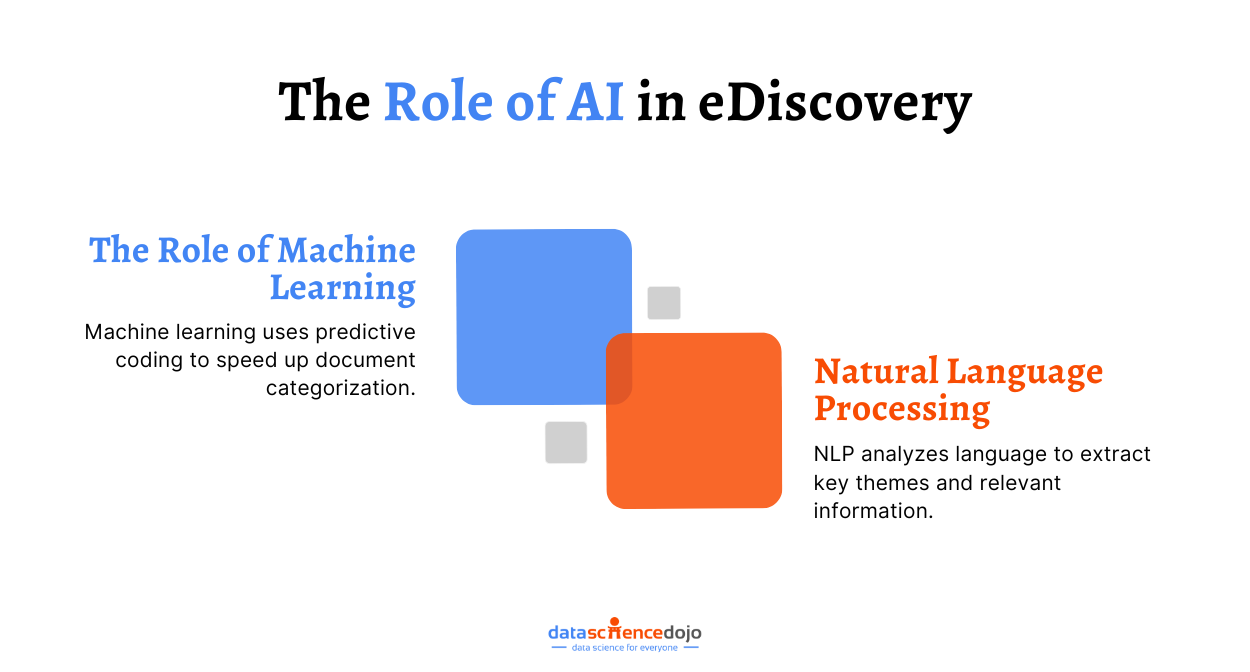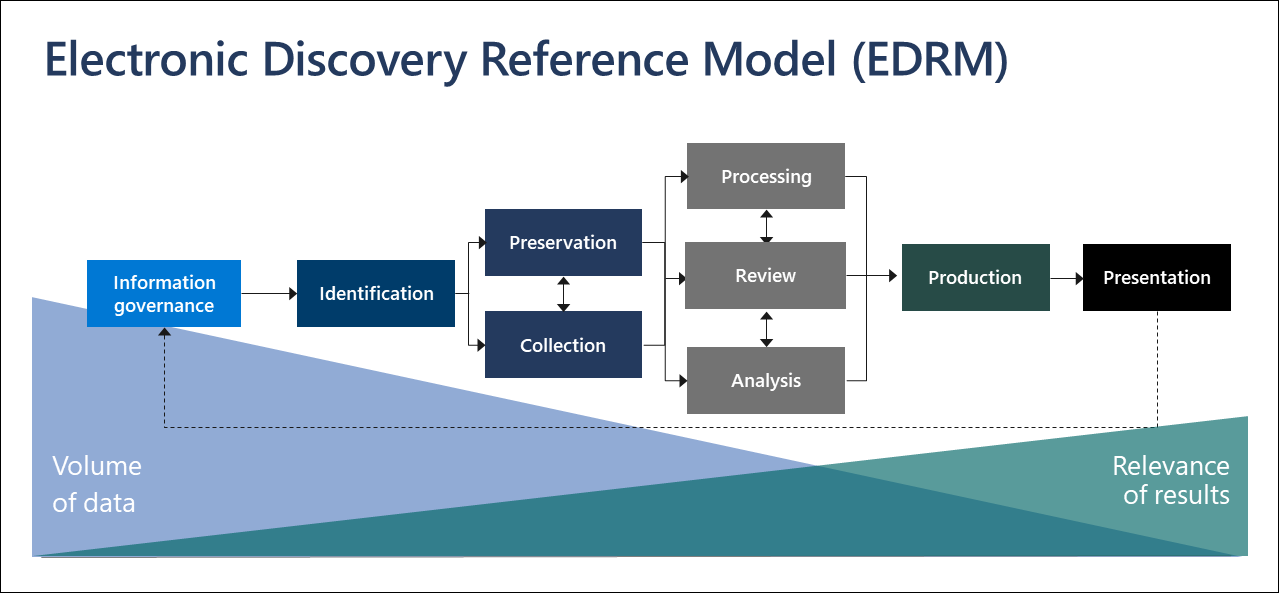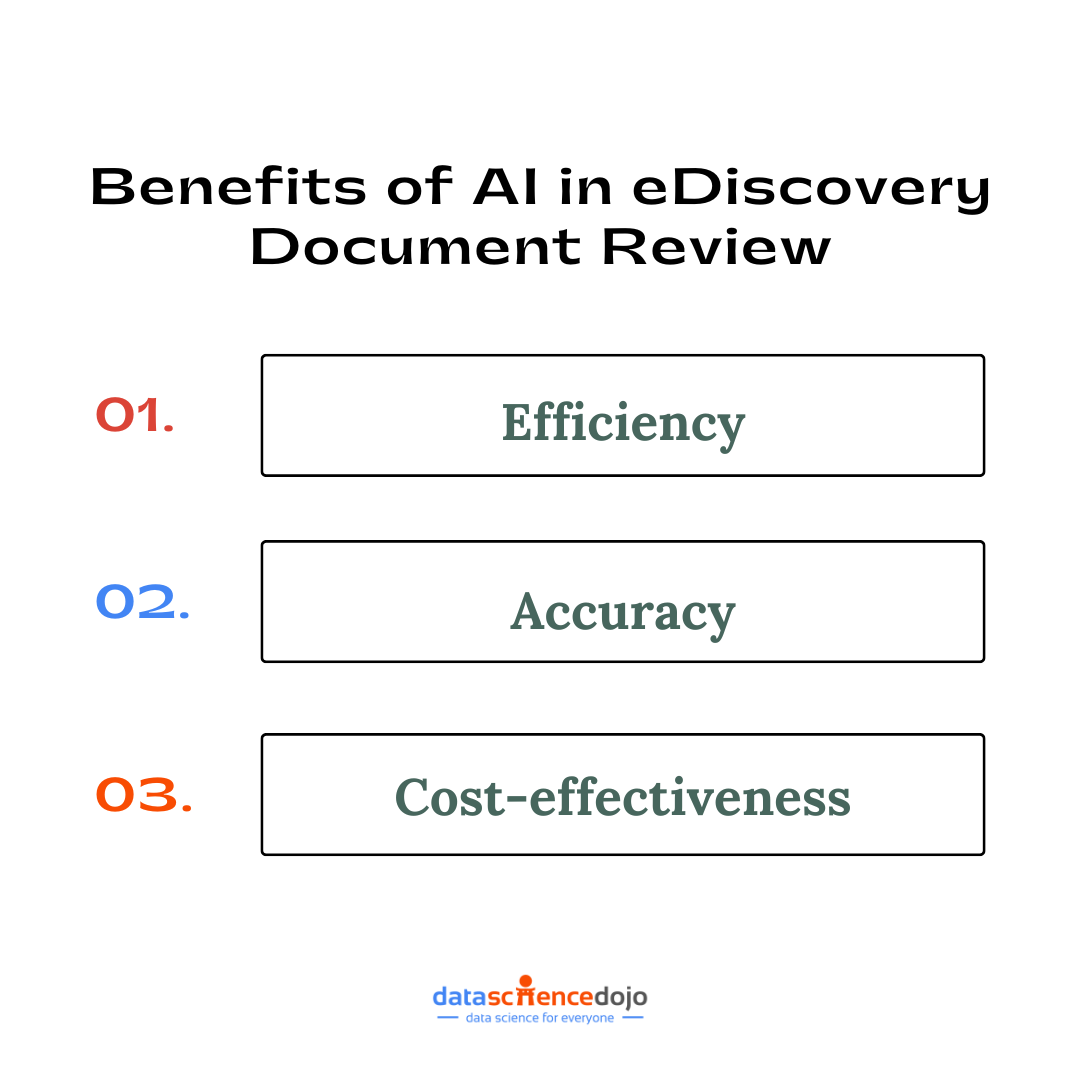EDiscovery plays a vital role in legal proceedings. It is the process of identifying, collecting, and producing electronically stored information (ESI) in response to a request for production in a lawsuit or investigation.
Anyhow, with the exponential growth of digital data, manual document review can be a challenging task. Hence, AI has the potential to revolutionize the eDiscovery process, particularly in document review, by automating tasks, increasing efficiency, and reducing costs.
Know how AI as a Service (AIaaS) Transforms the Industry
The Role of AI in eDiscovery
AI is a broad term that encompasses various technologies, including machine learning, natural language processing, and cognitive computing. In the context of eDiscovery, it is primarily used to automate the document review process, which is often the most time-consuming and costly part of eDiscovery.
Know more about 15 Spectacular AI, ML, and Data Science Movies
AI-powered document review tools can analyze vast amounts of data quickly and accurately, identify relevant documents, and even predict document relevance based on previous decisions. This not only speeds up the review process but also reduces the risk of human error.
The Role of Machine Learning
Machine learning, which is a component of AI, involves computer algorithms that improve automatically through experience and the use of data. In eDiscovery, machine learning can be used to train a model to identify relevant documents based on examples provided by human reviewers.
The model can review and categorize new documents automatically. This process, known as predictive coding or technology-assisted review (TAR), can significantly reduce the time and cost of document review.
Natural Language Processing and Its Significance
Natural Language Processing (NLP) is another AI technology that plays an important role in document review. NLP enables computers to understand, interpret, and generate human language, including speech.
Learn more about the Attention mechanism in NLP
In eDiscovery, NLP can be used to analyze the content of documents, identify key themes, extract relevant information, and even detect sentiment. This can provide valuable insights and help reviewers focus on the most relevant documents.
Key AI Technologies in Document Review
In the realm of eDiscovery, AI technologies are revolutionizing the way legal professionals handle document review. Two standout technologies in this space are predictive coding and sentiment analysis.
Predictive Coding
Predictive coding is a powerful AI-driven tool that revolutionizes the document review process in eDiscovery. By employing sophisticated machine learning algorithms, predictive coding learns from a sample set of pre-coded documents to identify patterns and relevance in vast datasets.
Learn How to use custom vision AI and Power BI to build a Bird Recognition App
This technology significantly reduces the time and effort required to sift through enormous volumes of data, allowing legal teams to focus on the most pertinent information.
As a result, predictive coding not only accelerates the review process but also enhances the consistency and reliability of document identification, ensuring that critical evidence is not overlooked.
Know about Predictive Analytics vs. AI
Sentiment Analysis
On the other hand, Sentiment analysis delves into the emotional tone and context of documents, helping to identify potentially sensitive or contentious content. By analyzing language nuances and emotional cues, sentiment analysis can flag documents that may require closer scrutiny or special handling.
These technologies not only enhance efficiency but also improve the accuracy of document review by minimizing human error.
Explore Type I and Type II Errors
By providing insights into the emotional undertones of communications, sentiment analysis aids legal teams in understanding the broader context of the evidence, leading to more informed decision-making and strategic planning.
Benefits of AI in Document Review
Efficiency
AI can significantly speed up the document review process. AI can analyze thousands of documents in a matter of minutes, unlike human reviewers, who can only review a limited number of documents per day. This can significantly reduce the time required for document review.
Understand how AI is empowering the Education Industry
Moreover, AI can work 24/7 without breaks, further increasing efficiency. This is particularly beneficial in time-sensitive cases where a quick review of documents is essential.
Accuracy
AI can also improve the accuracy of document reviews. Human reviewers often make mistakes, especially when dealing with large volumes of data. However, AI algorithms can analyze data objectively and consistently, reducing the risk of errors.
Furthermore, AI can learn from its mistakes and improve over time. This means that the accuracy of document review can improve with each case, leading to more reliable results.
Cost-effectiveness
By automating the document review process, AI can significantly reduce the costs associated with eDiscovery. Manual document review requires a team of reviewers, which can be expensive. However, AI can do the same job at a fraction of the cost.
Moreover, by reducing the time required for document review, AI can also reduce the costs associated with legal proceedings. This can make legal services more accessible to clients with limited budgets.
Challenges and Considerations
While AI offers numerous benefits, it also presents certain challenges. These include issues related to data privacy, the accuracy of AI algorithms, and the need for human oversight.
Data Privacy
In the realm of eDiscovery, data privacy is a paramount concern, especially when utilizing AI algorithms that require access to vast amounts of data to function effectively. The integration of AI in legal processes necessitates stringent measures to ensure compliance with data protection regulations.
It is essential to implement robust data governance frameworks that safeguard sensitive information, ensuring that personal data is anonymized or encrypted where necessary.
Legal teams must also establish clear protocols for data access and sharing, ensuring that AI tools handle information appropriately and ethically, thereby maintaining the trust and confidence of all stakeholders involved.
Explore 12 must-have AI tools to revolutionize your daily routine
Accuracy of AI Algorithms
While AI can improve the accuracy of document review, it is not infallible. Errors can occur, especially if the AI model is not trained properly. This underscores the importance of rigorous validation processes to assess the accuracy and reliability of AI tools.
Continuous monitoring and updating of AI models are necessary to adapt to new data patterns and legal requirements. Moreover, maintaining human oversight is crucial to catching any errors or anomalies that AI might miss.
By combining the strengths of AI with human expertise, legal teams can ensure a more accurate and reliable document review process, ultimately leading to better-informed legal outcomes. It is essential to ensure that AI tools comply with data protection regulations and that sensitive information is handled appropriately.
Human Oversight
Despite the power of AI, human oversight is still necessary. AI can assist in the document review process, but it cannot replace human judgment. Lawyers still need to review the results produced by AI tools and make final decisions.
Moreover, navigating AI’s advantages involves addressing associated challenges. Data privacy concerns arise from AI’s reliance on data, necessitating adherence to privacy regulations to protect sensitive information. Ensuring the accuracy of AI algorithms is crucial, demanding proper training and human oversight to detect and rectify errors. Despite AI’s prowess, human judgment remains pivotal, necessitating lawyer oversight to validate AI-generated outcomes.
Know more about LLM for Lawyers with the use of AI
AI has the potential to revolutionize the document review process in eDiscovery. It can automate tasks, reduce costs, increase efficiency, and improve accuracy. Yet, challenges exist. To unlock the full potential of AI in document review, it is essential to address these challenges and ensure that AI tools are used responsibly and effectively.
Future Trends in AI and eDiscovery
Looking ahead, AI in eDiscovery is poised to handle more complex legal tasks. Emerging trends include the use of AI for predictive analytics, which can forecast legal outcomes based on historical data. AI’s ability to process and analyze unstructured data will also expand, allowing for more comprehensive document reviews.
As AI continues to evolve, it will shape the future of document review by offering even greater efficiencies and insights. Legal professionals who embrace these advancements will be better equipped to navigate the complexities of modern litigation, ultimately transforming the landscape of eDiscovery.







